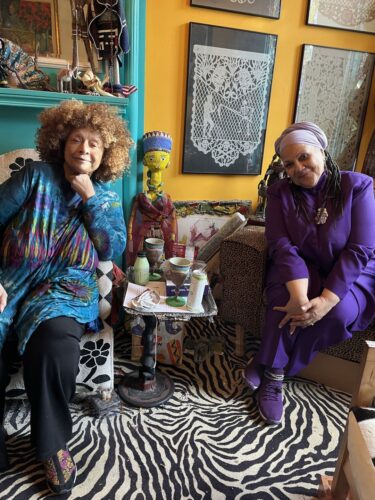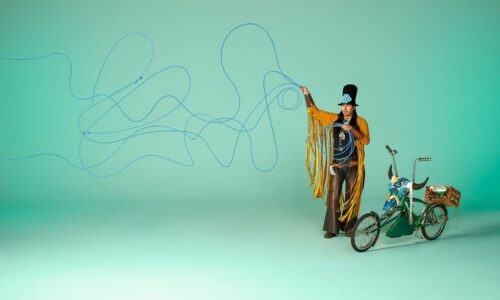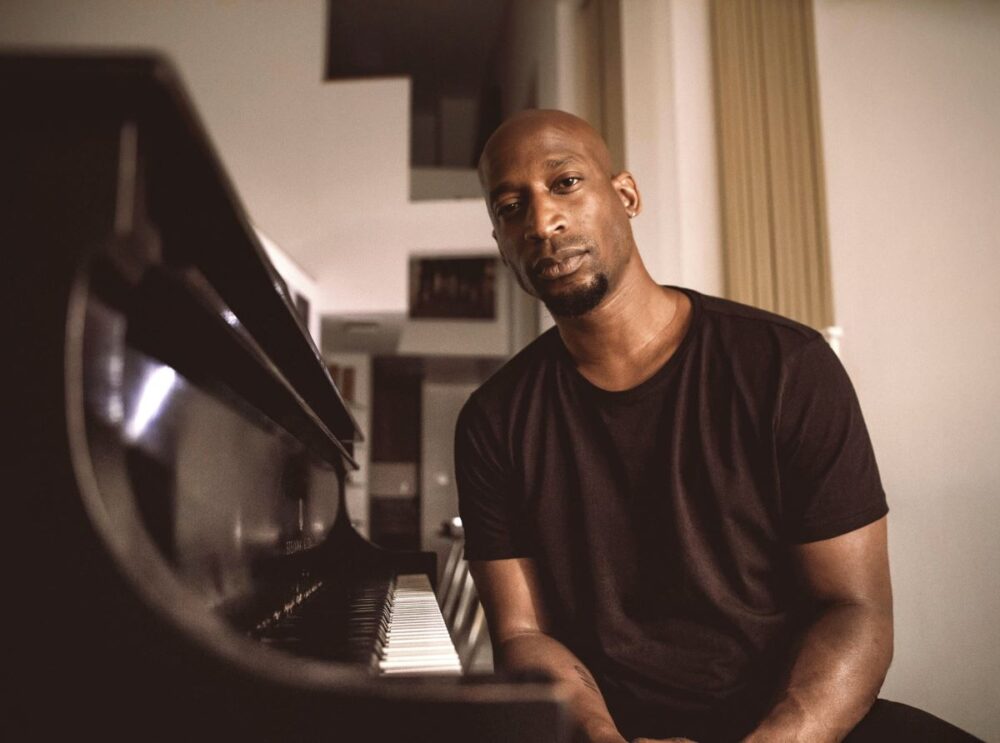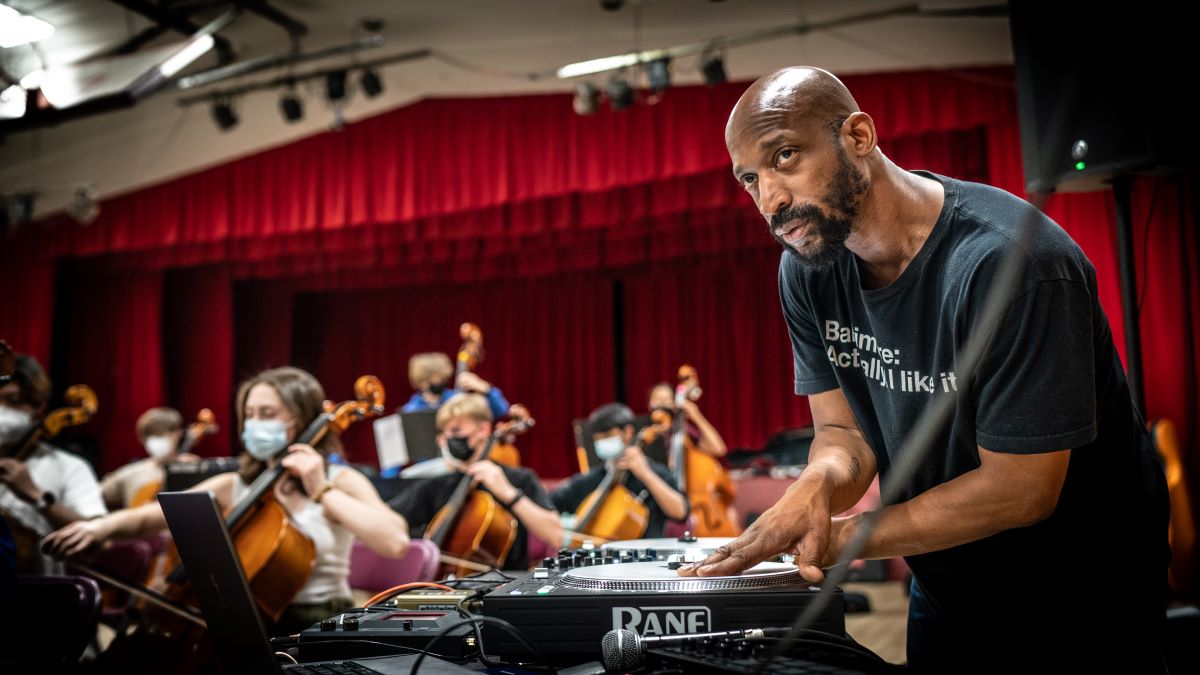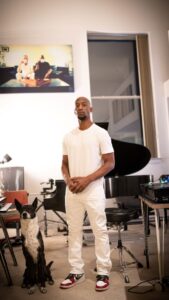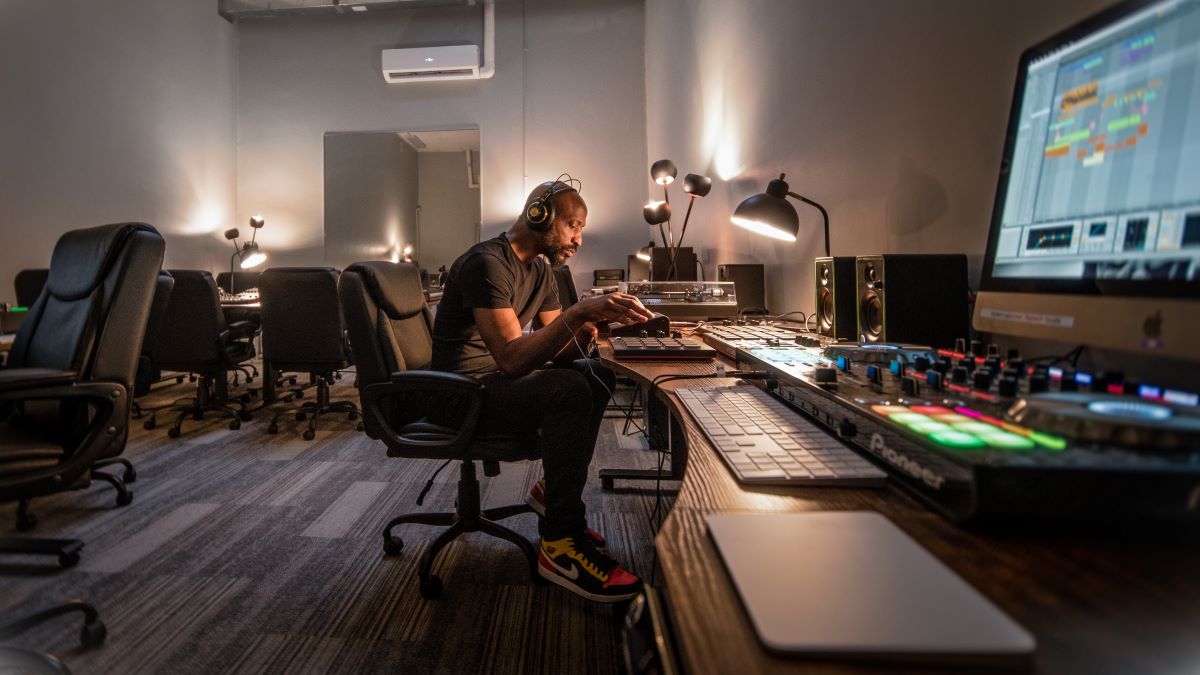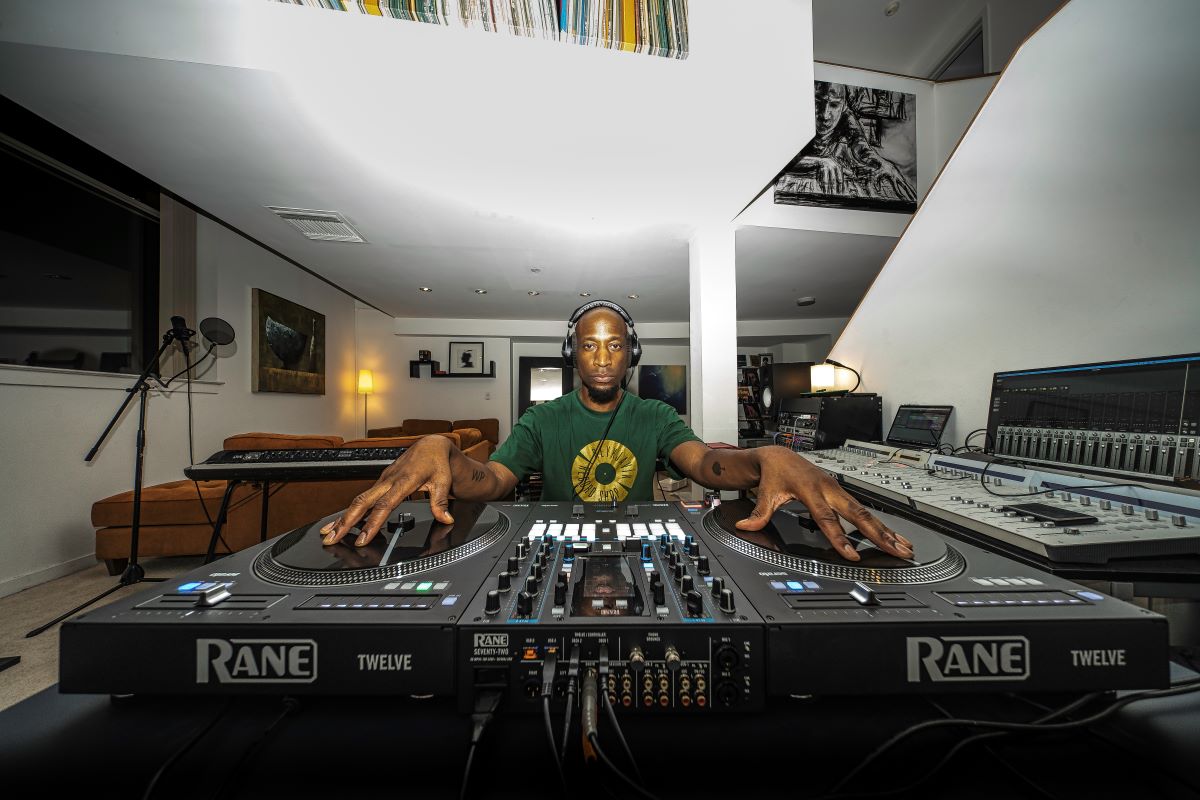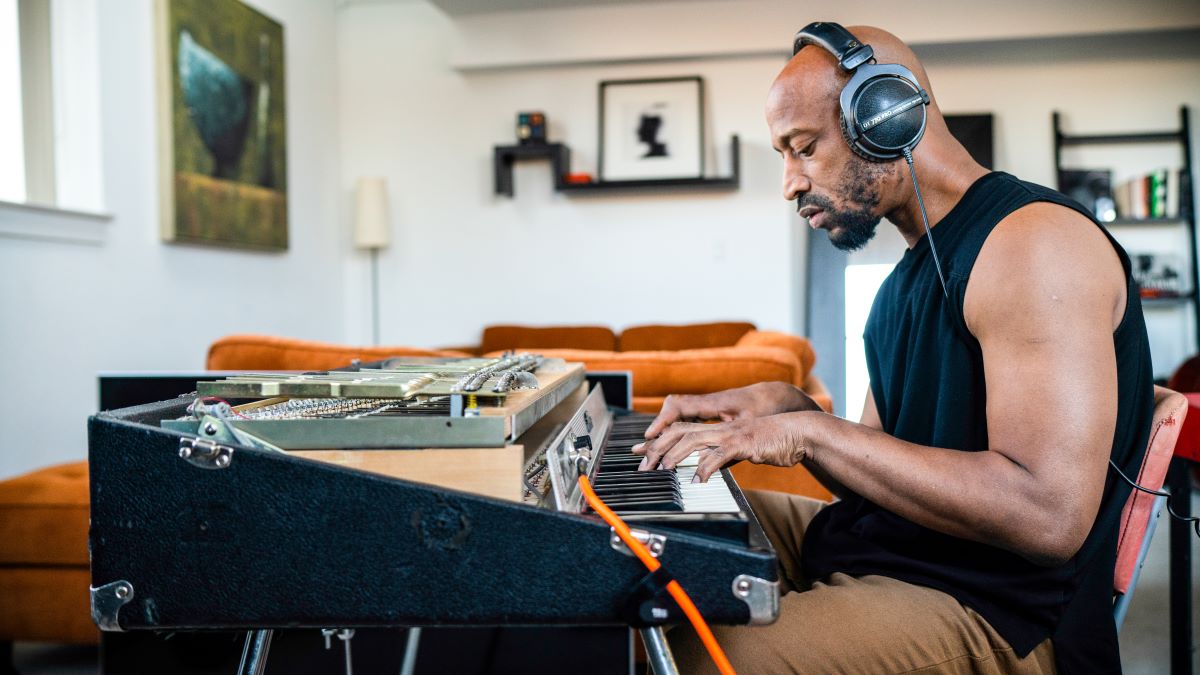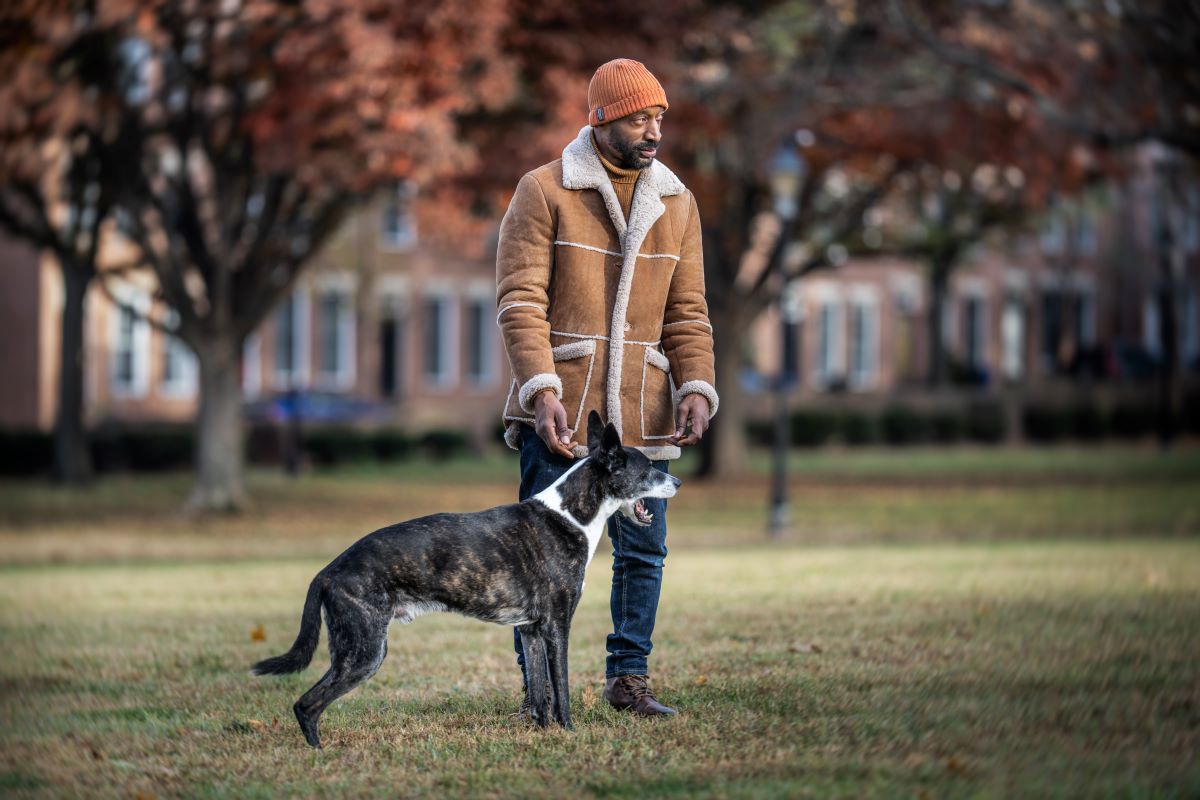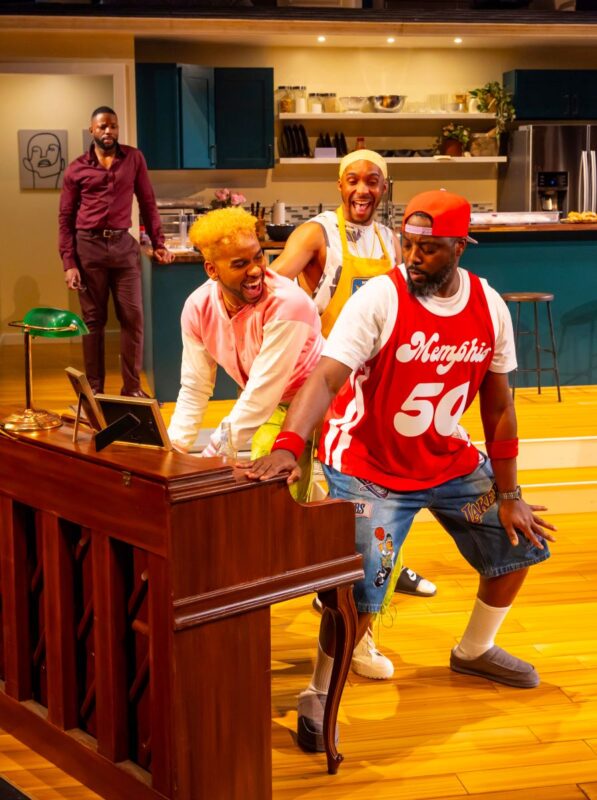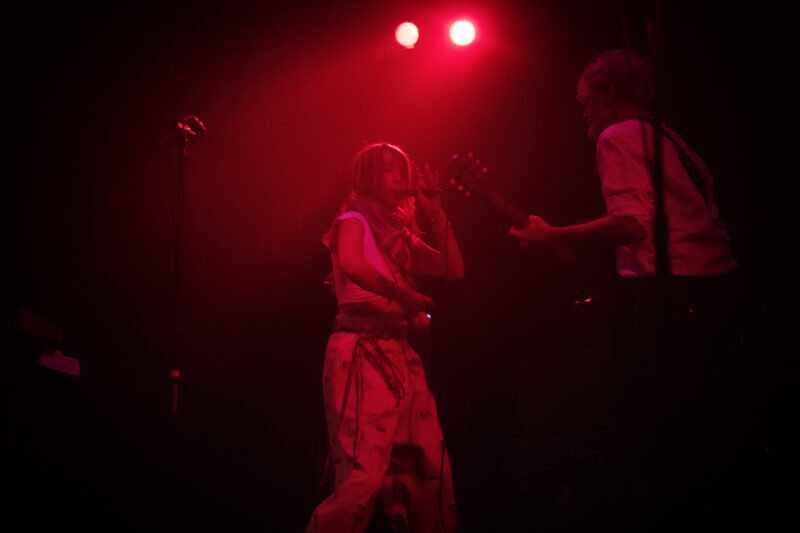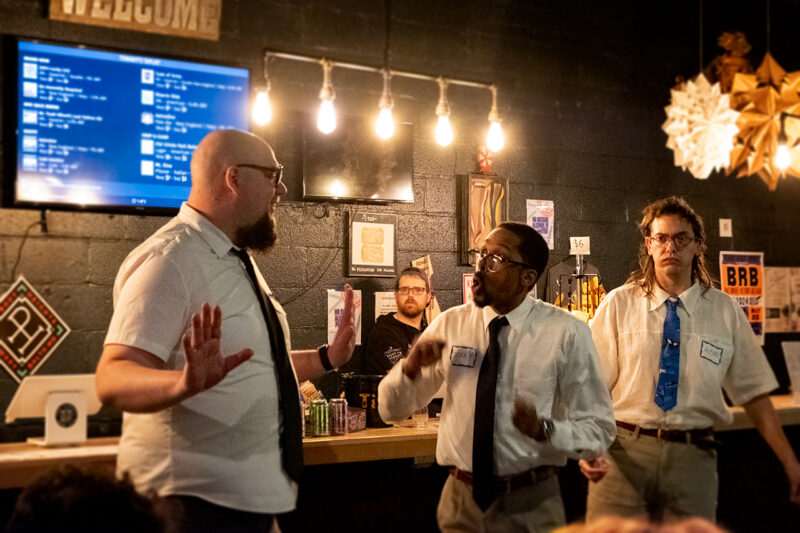In 2023, hip-hop and Wendel Patrick both turned fifty. In honor of the synchronistic coming-of-age moment, he hosted The Hip Hop At 50 panel discussion at Johns Hopkins in November and co-hosted the 100th session of The Baltimore Boom Bap Society, an improvised hip-hop collective that began in 2011 which he co-curates with Erik Spangler, aka DJ Dubble8.
In the spirit of making meaningful connections, Patrick invited me to join all the fun and attend the 100th series event. I arrived at Le Mondo to see several of the group’s favorite emcees, musicians, break dancers, and featured guest, Lupe Fiasco. Patrick was in his element on turntables and electronics. The energy was high as both the audience and performers were building on each other’s excitement. I had the best time and was moved seeing him facilitate a community gathering around the collective love of hip-hop.
Wendel Patrick is an associate professor of music engineering at the Peabody Institute at Johns Hopkins University; he is also a composer, producer, beatmaker, pianist, sonic architect, photographer, and videographer. But how has he sustained a career with such a diverse breadth of work? Well, in my brief time getting to know Patrick it has become abundantly clear that beyond his successes as an international music giant, Patrick is first and foremost a person grounded in his community partnerships. He elevates those around him through leadership, teaching, collaborative projects, and inclusive programming. Patrick seeks to accommodate those in his company which is the root of his sustained success.
Patrick has been active throughout the city of Baltimore curating the Baltimore by Baltimore Baker Artists Extravaganza and creating soundscapes for the Baltimore Museum of Art (BMA). Last year, The BMA held the hip-hop exhibition called, The Culture: Hip Hop and Contemporary Art in the 21st Century, where Patrick made one of the two soundscapes for the exhibition and published his writing in the exhibition catalog.
